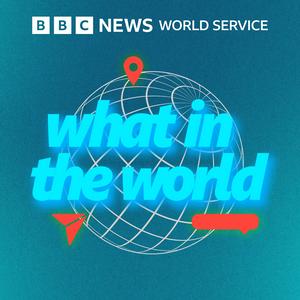The US company Colossal claim to have brought back the dire wolf from extinction after 12,000 years through genetic engineering. The three pups, called Romulus, Remus and Khaleesi, are now living in an undisclosed nature preserve, unaware that their existence has made headlines around the world. But Colossal aren’t finished yet, they want to continue to “de-extinct” other animals, such as the woolly mammoth. BBC Science Correspondent Victoria Gill explains how the experiment was done. How realistic is “de-extinction”? And are these actually dire wolves?Instagram: @bbcwhatintheworld
Email:
[email protected]
WhatsApp: +44 0330 12 33 22 6
Presenter: William Lee Adams
Producers: Josh Jenkins and Emilia Jansson
Editor: Emily Horler

